Staying on top of your vaccines is crucial for maintaining good health and protecting yourself from preventable diseases. In this article, we will explore the importance of keeping your vaccines up to date, including the benefits it provides not only for you but for those around you as well. Discover why staying proactive with your immunizations is the key to safeguarding your well-being and creating a healthier community.
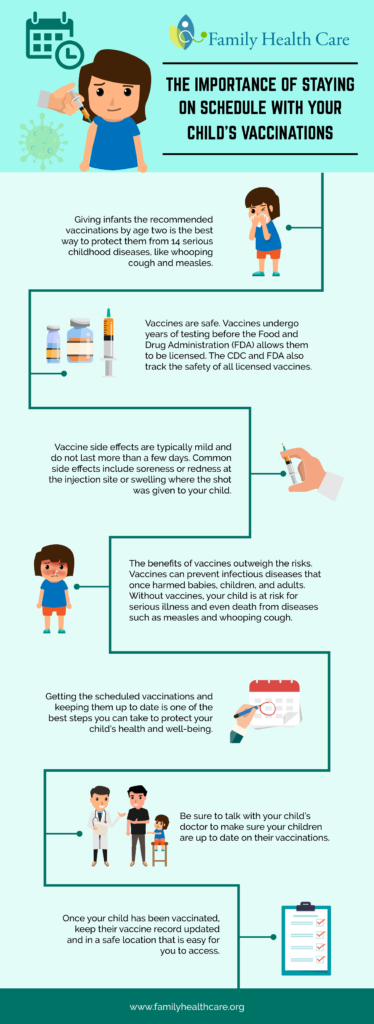
This image is property of www.familyhealthcare.org.
Prevention of Diseases
Vaccines play a crucial role in the prevention of diseases, both on an individual and community level. By receiving timely vaccinations, you can protect yourself and those around you from highly infectious diseases. It is essential to stay informed about the recommended vaccines for your age group and ensure you are up to date with your immunizations.
Protection Against Highly Infectious Diseases
Highly infectious diseases such as measles, chickenpox, and whooping cough can rapidly spread within communities. However, through vaccination, you can significantly reduce the risk of contracting and transmitting these diseases. Vaccines contain weakened or inactivated forms of the disease-causing agents, stimulating your immune system to develop immunity without causing the illness itself.
Preventing Outbreaks and Epidemics
Vaccination not only provides individual protection but also helps prevent outbreaks and epidemics. When the majority of a population is vaccinated against a particular disease, it creates a concept known as “herd immunity.” This means that even those who cannot receive vaccines due to age, medical conditions, or other factors are indirectly protected because the disease has a limited opportunity to spread. By staying up to date with vaccines, you contribute to the overall health and well-being of your community.
Reducing the Spread of Disease
One of the significant benefits of vaccination is its ability to reduce the spread of diseases. Many viruses and bacteria can be transmitted through respiratory droplets, physical contact, or contaminated surfaces. By getting vaccinated, you not only protect yourself but also act as a barrier in preventing the transmission of these pathogens to others. This is especially important in high-risk settings such as schools, crowded public spaces, and healthcare facilities.
Controlling Vaccine-Preventable Diseases
Thanks to widespread vaccination efforts, many diseases that were once a significant threat to public health have been effectively controlled or even eradicated. Diseases such as smallpox and polio, which caused widespread suffering and death, have been virtually eliminated due to the power of vaccines. This remarkable progress in medical science showcases the importance of keeping vaccines up to date. By continuing to receive recommended vaccinations, we can maintain the control over these diseases and protect future generations.
Individual Health Benefits
Taking care of your individual health is of utmost importance, and vaccines play a crucial role in preventing severe illness and complications.
Preventing Severe Illness and Complications
Vaccines are specifically designed to protect individuals from the most severe forms of diseases. By receiving timely immunizations, you greatly reduce the risk of developing life-threatening complications associated with these infections. For example, getting the flu vaccine not only decreases the chances of getting the flu but also lessens the likelihood of needing hospitalization or experiencing severe complications if you do get infected.
Boosting Immune System
Vaccines work by stimulating your immune system to recognize and fight off specific pathogens. By doing so, they not only protect you from the targeted disease but also strengthen your immune system overall. Even if you do contract a particular illness after vaccination, your immune system is better equipped to mount a quicker and more effective response, reducing the severity and duration of the illness.
Avoiding Hospitalization and Medical Expenses
Prevention is always better than cure, and this principle holds true when it comes to vaccines. By staying up to date with your vaccinations, you can significantly reduce the likelihood of falling seriously ill and requiring hospitalization. This not only safeguards your health but also helps avoid the burden of medical expenses and potential long-term healthcare costs. Vaccines are a cost-effective way to stay healthy and protect yourself from the financial consequences of severe illness.
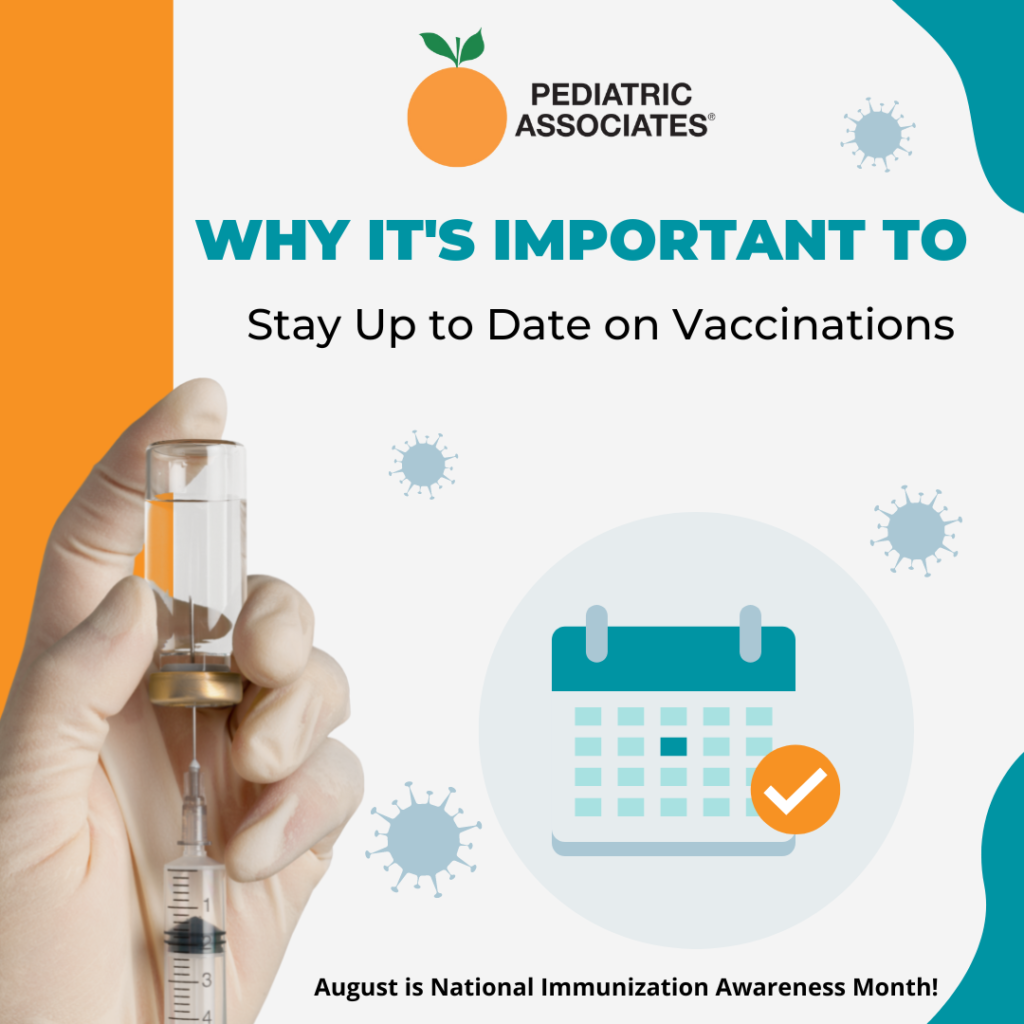
This image is property of www.fcpediatrics.com.
Community Health Benefits
Vaccinations not only protect individuals but also bring about significant benefits to the broader community.
Achieving Herd Immunity
Herd immunity is a powerful concept that arises when a large proportion of a community is immune to a particular disease, either through vaccination or previous infection. This effectively limits the spread of the disease and protects those who cannot receive vaccines, such as infants, pregnant women, and individuals with weakened immune systems. By staying up to date with your vaccines, you contribute to the collective effort of achieving herd immunity and safeguarding vulnerable populations.
Protecting Vulnerable Populations
Certain individuals, such as the elderly, infants, pregnant women, and those with chronic illnesses, are more susceptible to severe complications from vaccine-preventable diseases. By getting vaccinated and reducing the likelihood of becoming infected, you actively protect these vulnerable populations. Your personal choice to stay up to date with vaccines can have a profound impact on the health and well-being of those who are at higher risk.
Reducing Healthcare Burden
Vaccines have a significant impact on reducing the burden on healthcare systems. By preventing the spread of diseases, vaccinations alleviate the strain on hospitals, clinics, and healthcare professionals. When fewer individuals become ill, fewer medical resources are required for treatment, allowing the healthcare system to focus on providing care to those who truly need it. By keeping vaccines up to date, you contribute to a more efficient and sustainable healthcare system for all.
Vaccine Effectiveness
Vaccine effectiveness is a critical factor in determining the success of immunization programs.
Maintaining Optimal Protection
Vaccines are carefully studied and developed to provide the highest level of protection against specific diseases. However, immunity may decrease over time, which is why it is essential to keep your vaccines up to date. By following the recommended vaccination schedules, you ensure that you maintain optimal protection against targeted diseases. Boosters and additional doses, when recommended, help reinforce your immune response and extend the duration of immunity.
Enhancing Vaccine Longevity
While vaccines provide excellent protection, their effectiveness can vary from person to person. Certain factors, such as age, overall health, and underlying medical conditions, can influence the duration and strength of immunity conferred by vaccines. However, by receiving regular booster shots and staying updated on the latest vaccine developments, you can enhance the longevity of vaccine-induced protection. This helps ensure that you remain effectively shielded against specific diseases.
Adapting to Viral Mutations
Viruses are notorious for their ability to mutate and change over time. Sometimes, these mutations can lead to the emergence of new strains or variants that may be more resistant to current vaccines. However, ongoing research and surveillance efforts allow scientists to monitor these changes and develop updated vaccines as needed. By keeping up to date with your vaccines, you contribute to the collective effort of adapting to viral mutations and maintaining effective protection against evolving diseases.
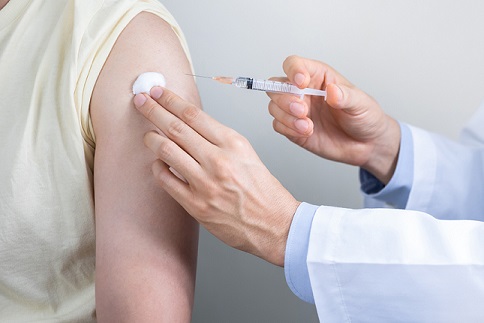
This image is property of www.publichealth.hscni.net.
Preventing Drug-Resistant Strains
Vaccines also play a vital role in preventing the emergence and spread of drug-resistant strains of bacteria and other pathogens.
Minimizing Evolution of Resistant Strains
Selective pressure caused by the excessive use of antibiotics can lead to the emergence of drug-resistant bacteria. By preventing the illnesses caused by these bacteria through vaccination, we can reduce the need for antibiotics in the first place. This helps minimize the evolution of resistant strains, ensuring that antibiotics remain effective when needed the most.
Combating Antimicrobial Resistance
Antimicrobial resistance is a global health concern that arises when bacteria, viruses, and other pathogens develop resistance to the drugs commonly used to treat them. By preventing the spread of diseases through vaccination, we can decrease the reliance on antibiotics and other antimicrobial medications. This reduces the overall risk of antimicrobial resistance and helps preserve the effectiveness of these life-saving treatments for future generations.
Decreasing Dependence on Antibiotics
Overreliance on antibiotics has contributed to the rise of antimicrobial resistance, a serious threat to global health. Vaccination is an effective preventive measure that decreases the need for antibiotics by preventing the diseases that would typically require treatment. By reducing the dependence on antibiotics, vaccines help preserve the effectiveness of these vital medications for more serious infections and contribute to the overall fight against antimicrobial resistance.
International Travel
If you are planning international travel, staying up to date with your vaccines is crucial for your health and the well-being of others.
Meeting Travel Requirements
Different countries have specific vaccine requirements to protect their populations and prevent the introduction and spread of diseases from other regions. Failure to meet these requirements may result in denial of entry or even quarantine upon arrival. By staying up to date with your vaccines and fulfilling the necessary travel requirements, you not only protect yourself but also ensure a smooth and hassle-free travel experience.
Preventing Spread of Diseases Across Borders
International travel facilitates the rapid spread of diseases across borders. Infectious diseases can easily be carried by travelers from one location to another, posing a risk to individuals who have not been vaccinated or lack immunity. By staying up to date with your vaccines, you play a crucial role in preventing the importation and transmission of diseases, protecting the health of both your destination and home communities.
Reducing Personal Health Risks
When traveling to unfamiliar destinations, you may encounter infectious diseases that are not prevalent in your home country. By keeping your vaccines up to date and receiving any necessary travel-specific vaccinations, you reduce the personal health risks associated with exposure to unfamiliar pathogens. This ensures that you can enjoy your travel experience without worrying about falling seriously ill and potentially interrupting your trip due to illness.
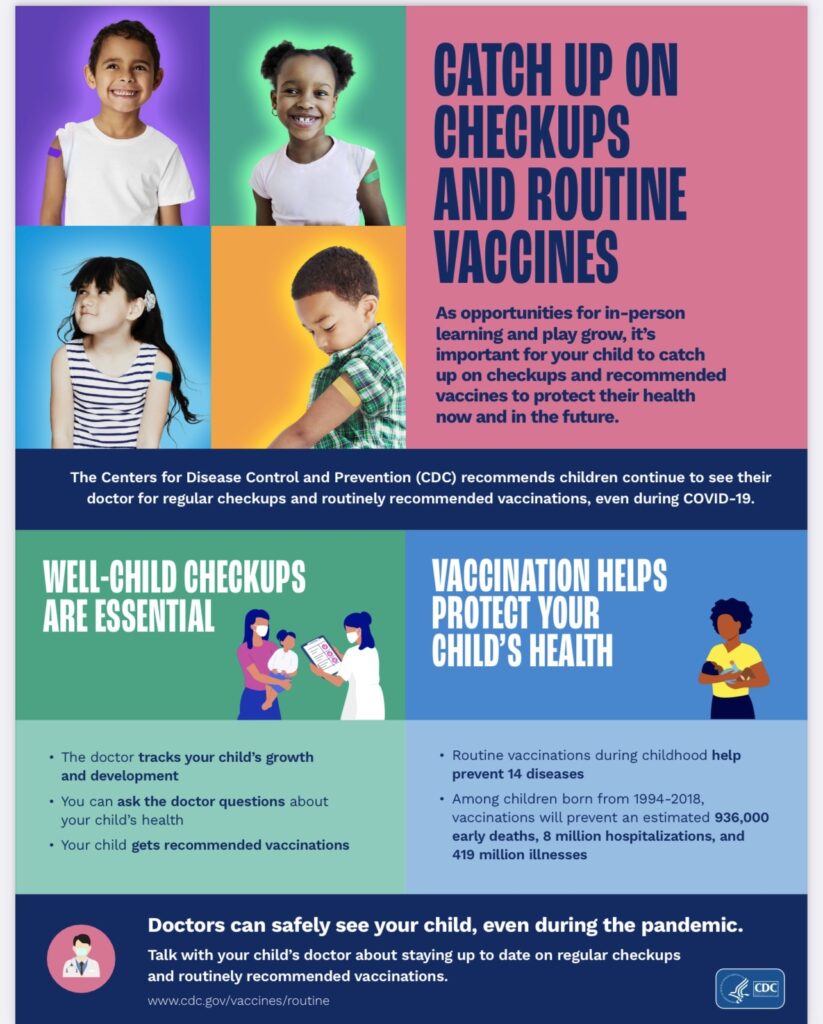
This image is property of www.gnrhealth.com.
Childhood Immunization
Vaccinations are a key component of childhood healthcare, offering significant benefits for children’s health and well-being.
Protecting Children’s Health
Childhood vaccinations are designed to protect children from serious and potentially life-threatening diseases. Diseases such as measles, mumps, rubella, and pertussis can have severe complications in children, including pneumonia, encephalitis, and even death. By keeping vaccines up to date, parents and caregivers provide a vital layer of protection for their children, ensuring their overall health and well-being.
Preventing Developmental Delays
Certain vaccine-preventable diseases can cause developmental delays in children. For example, meningitis, which can be prevented through immunization, can lead to long-term cognitive or physical impairments. By ensuring that your child receives the recommended vaccines, you minimize the risk of these diseases and promote their healthy growth and development.
Maintaining School Attendance
Many schools require proof of immunization to enroll and maintain attendance. This requirement is in place to protect children from the spread of infectious diseases within educational settings. By keeping your child’s vaccinations up to date, you not only fulfill school requirements but also contribute to the overall health and safety of the school community. Vaccinations provide the means to ensure uninterrupted education and a positive learning environment for all students.
Adolescent and Adult Vaccination
Vaccinations are not limited to childhood; they also play a crucial role in safeguarding the well-being of adolescents and adults.
Preventing Illness and Infections
Adolescents and adults can also benefit greatly from staying up to date with their vaccines. Many vaccine-preventable diseases, such as influenza, tetanus, and HPV-related cancers, can affect individuals of all ages. By receiving recommended vaccinations, you reduce the risk of contracting these diseases and protect yourself from severe illness, hospitalization, and potential long-term complications.
Maintaining Health During Life Transitions
Adolescence and adulthood often bring about significant life transitions, such as starting college, entering the workforce, or becoming parents. These transitions can expose individuals to new environments and potential health risks. By ensuring that your vaccines are up to date, you provide yourself with a solid foundation of protection during these transitions, helping maintain your health and minimizing any disruptions to your plans or goals.
Protecting Against Chronic Diseases
Vaccines not only prevent acute infections but can also protect against specific chronic diseases. For instance, the hepatitis B vaccine significantly reduces the risk of developing chronic hepatitis B infection, which can lead to long-term liver damage and an increased risk of liver cancer. By receiving these vaccines, you proactively safeguard your health and reduce the likelihood of developing chronic conditions that can significantly impact your quality of life.
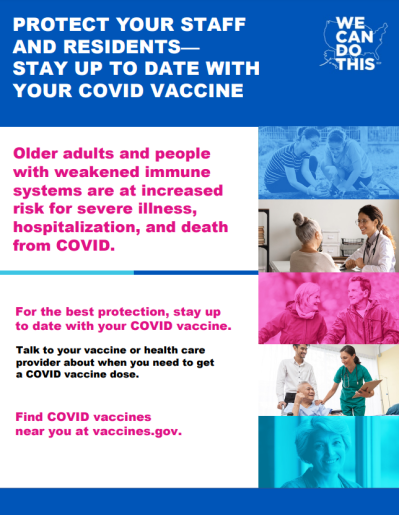
This image is property of wecandothis.hhs.gov.
Employment and Education Requirements
Staying up to date with your vaccines can have implications for your employment and education.
Meeting Job or School Requirements
Many employers and educational institutions have specific vaccine requirements in place to protect the health and safety of their employees, students, and visitors. Compliance with these requirements is often necessary for job security or enrollment. By ensuring that your vaccines are up to date, you demonstrate your commitment to meeting these requirements, safeguarding yourself and those around you, and maintaining your employment or educational opportunities.
Ensuring Workplace and Classroom Safety
In workplaces and educational settings, vaccines play a crucial role in maintaining a safe and healthy environment. By staying up to date with your vaccines, you reduce the risk of spreading vaccine-preventable diseases to colleagues, classmates, and others in your shared spaces. This promotes a culture of safety and well-being, ensuring that everyone can work or learn in an environment free from unnecessary health risks.
Reducing Absences due to Illness
The consequences of falling ill can extend beyond personal health. It can impact your work performance, educational progress, and overall productivity. By keeping your vaccines up to date, you significantly reduce the likelihood of contracting and spreading vaccine-preventable diseases, minimizing the risk of unexpected absences due to illness. This helps you maintain consistency, meet your responsibilities, and thrive in your chosen endeavors.
Historical Impact of Vaccines
Throughout history, vaccines have had a profound impact on public health and have transformed the way we protect ourselves and our communities.
Eradicating and Controlling Diseases
Vaccines have played a pivotal role in the eradication and control of devastating diseases. Smallpox, one of the deadliest diseases in human history, was successfully eradicated through a global vaccination campaign. Polio, once a leading cause of paralysis and death, has been eliminated from many parts of the world. These remarkable achievements stand as a testament to the power of vaccines to save lives and rid the world of diseases that were once considered uncontainable.
Saving Lives and Improving Public Health
Vaccines have undoubtedly saved countless lives and improved public health. Diseases that were once widespread and claimed numerous lives, such as measles and diphtheria, have become rare occurrences in many countries with robust vaccination programs. By keeping vaccines up to date, we continue to build upon this progress, preventing unnecessary suffering and ensuring that future generations can enjoy a healthier and safer world.
Progress in Medical Science
The development of vaccines represents a significant milestone in medical science. Vaccines are the result of rigorous scientific research, extensive clinical trials, and ongoing advancements in immunology and infectious disease prevention. By staying up to date with vaccines, we demonstrate our support for scientific progress. Our commitment to vaccines empowers researchers and healthcare professionals to continue innovating and addressing emerging health challenges effectively.
In conclusion, keeping vaccines up to date is crucial for both individual and community health. Vaccinations provide protection against highly infectious diseases, prevent severe illness and complications, and contribute to maintaining herd immunity. They effectively reduce the spread of diseases, control vaccine-preventable diseases, and help in adapting to viral mutations. Vaccines also play a vital role in preventing the emergence and spread of drug-resistant strains and support safe international travel. Childhood immunizations protect children’s health, prevent developmental delays, and ensure uninterrupted school attendance. Adolescent and adult vaccinations prevent illness and infection, maintain health during life transitions, and protect against chronic diseases. Staying up to date with vaccines is essential to meet employment and education requirements, ensure workplace and classroom safety, and reduce absences due to illness. The historical impact of vaccines showcases their incredible ability to eradicate and control diseases, save lives, and drive progress in medical science. By keeping vaccines up to date, we actively contribute to a healthier and safer world for all.
